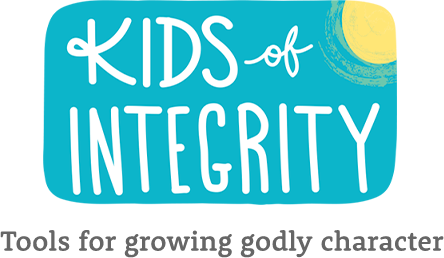Harmony

Bible stories
This section provides Bible stories with the theme of harmony, along with questions you can use as a guide for family discussions. Choose one story that is appropriate for your children. Before reading aloud, take a few minutes to review the story. If the Bible passage is too complex for your children, paraphrase the story yourself or use the summary provided under “key concepts.”
Family feud, part one
Read Genesis 37:1-11 and Galatians 5:19-25.
Questions for discussion
- What can make you feel jealous of your brother/sister/friend?
- Does it ever seem like your siblings get more than you do?
- What made Joseph’s brothers jealous?
- How could this have been avoided?
- How can we avoid this kind of conflict in our family?
Key concepts
Jacob, the father, favoured his youngest son, Joseph. This made the other sons jealous. Then, Joseph had a dream and told his brothers about it. He said he dreamed that while they were binding sheaves of wheat in the field, their sheaves bowed down to his sheaf. He had another dream where he dreamed the sun and moon and eleven stars bowed down to him. These dreams made his brothers even more jealous.
It is not right for parents to favour one child over another. Nor is it right for one child to brag about things to the other children to try and make them jealous. Jealousy of any kind only serves to cause discord in families. Jealousy is sin and the only way to get rid of sin is to pray and ask for God’s forgiveness. We also need to ask for His Holy Spirit to fill us with love and peace instead.
Family feud, part two
Read Genesis 37:12-36 and 1 John 4:7-12.
Questions for discussion
- What did Joseph’s jealous brothers plan to do?
- Which brother tried to stop them?
- What was the first thing they did to Joseph?
- What was the last thing they did to him?
- What does jealousy do to families?
- When are you tempted to be jealous of a brother, sister or friend?
- What should you do when you are tempted to feel jealous?
- How can we feel love for someone instead of jealousy?
Key concepts
Joseph’s brothers were so jealous of him that they decided to kill him. One brother, Rueben convinced them to throw him in a dried-out well instead. Before Rueben could rescue Joseph the other brothers sold him to some merchants who then sold Joseph as a slave. Jealousy can even grow into hatred. Jealousy and hatred are sins that can lead to more sin. God is more powerful than any sin and He can give us His power and strength to overcome sin (1 Corinthians 15:56-57, 1 John 4:4). God is love and having God’s love in us enables us love each other (1 John 3:7-12).
Family feud, part three
Read Genesis 50:15-21, 1 Peter 3:8-12 and Colossians 3:12-15.
Questions for discussion
- What did Joseph’s brothers think he might do after their father died?
- What did Joseph do?
- Why do you think Joseph cried?
- What did Joseph say to his brothers?
- If someone harms you, is it God’s job or your job to punish that person?
- What did Joseph do instead of repaying his brothers for the evil they had done?
- Who can help you follow Joseph’s example of forgiveness?
Key concepts
Though there were many challenging years for Joseph in Egypt, God used his situation to rescue and reunite Joseph’s entire family (Genesis 42-47). Joseph had been blessed by God and was in a position of such power that he could have destroyed his brothers and their families if he had chosen to. After their father died, his brothers became afraid that Joseph might repay the evil they had done to him (Genesis 50:15-17). Instead of doing God’s job and punishing his brothers, Joseph gave God glory for taking the bad situation and turning it into good for all of them. He forgave and comforted his brothers (Genesis 50:19-21). Using God’s love, we can follow Joseph’s example of forgiving others, even when they don’t deserve to be forgiven.
Waiting
Read Psalm 37:1-11.
Questions for discussion
- What do you feel like doing when you see someone getting away with doing something wrong? (Give an appropriate example.)
- Who can help you in a situation like this?
- What does the Bible say will happen if you get angry and worry about it?
- What should we do if it seems like others are getting away with being wicked?
Key concepts
David’s advice for those who see others getting away with evil is to wait patiently before God. He advises that getting angry and fretting only leads to more evil. When you are upset because it seems as though someone is doing wrong, talk with God or ask a parent to help you talk with God about the problem.
Living in love
Read 1 Corinthians 13:4-7, 11,14.
Questions for discussion
- Can you name the opposite of each of these words: patient, kind, content, humble, polite, generous, tolerant?
- Have your children fill in the blank as you say, “If we love each other, we choose to be patient instead of _________.” Repeat for all of the dimensions of love your children listed in response to the first question. Discuss scenarios in your family life where your kids would be faced with these choices.
- God wants us to live at peace with others. Can we do it without His help?
Key concepts
God wants families to live at peace with each other. This can only happen if we ask God’s love and peace to live with us. We will experience more peace in our homes and relationships if we are patient instead of impatient, kind instead of mean, content instead of envious, humble instead of boastful or proud, polite instead of rude, generous instead of selfish, and calm/tolerant/self-controlled instead of easily angered.
Loving our brothers (and sisters!)
Read 1 John 4:7,10-12, 19-20.
Questions for discussion
- How can someone tell if you love your brothers and sisters?
- How can someone tell if you do not love your brother and sisters?
- Why does the Bible say we are to love our brother and sisters?
- Who can help you love a brother or sister when it is hard to love them?
Key concepts
God is love, and love comes from God. God asks us to love others as He loves us. Showing love to others shows them God’s love for them. When we have a hard time loving someone, God can share His love for that person with us.
The Prince of Peace
Questions for discussion
- Read Isaiah 9:6. What is Jesus called?
- Read Luke 2:13-14. What did the angels announce about His coming?
- Read Romans 3:23, Romans 6:23, Romans 5:1-2. What keeps us from being at peace with God?
- Read Romans 5:6-8, John 3:16. We deserve to be punished for our sins, but how did God arrange for someone else to take our punishment?
Key concepts
Jesus is the Prince of Peace. When He was born, the angels sang “Peace on earth.” Because we have sinned, we are separated from God and deserve to die for our sins. But Jesus died, taking the punishment for our sins, so we can have peace with God. If we ask God to forgive our sins and believe in his Son, Jesus, God forgives our sins and considers us to be one of His sons or daughters. We then follow God by asking Him to be the leader of our lives and allowing Him to put His Spirit in our hearts to make our thoughts and actions like Jesus’.
Me first
Read Mark 10:35-45.
Questions for discussion
- What causes conflict at home? At school?
- What did James and John do to cause discord?
- What did Jesus say?
- What do you do to cause this kind of disagreement?
- How can we avoid these kinds of conflicts?
- List some ways we can serve each other.
Key concepts
Just as James and John both wanted to have the place of honour, children often push and shove to be first in line or have the preferred seat. James and John requested honour for themselves, which stirred up discord among the disciples. Jesus’ reply was that he who wants to be the greatest must be the servant of all. A “putting others first” approach encourages peace, whereas a “get ahead for myself” attitude causes conflict. When we choose to honour others by putting their needs ahead of our own, it is pleasing to God.
- Acceptance
- Adaptability
- Attentiveness
- Christmas
- Compassion
- Confidence
- Consideration
- Contentedness
- Cooperation
- Courage
- Courtesy
- Discernment
- Easter
- Faithfulness
- Forgiveness
- Generosity
- Gentleness
- Gratitude
- Harmony
- Honesty
- Humility
- Joy
- Kindness
- Obedience
- Patience
- Perseverance
- Respect
- Responsibility
- Reverence
- Righteousness
- Self-control
- Thanksgiving

